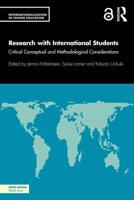Publisher's Synopsis
A key application of Laser Detection and Ranging (LADAR) systems is measurement of range to a target. Many modern LADAR systems are capable of transmitting laser pulses that are less than a few nanoseconds in duration. These short-duration pulses provide excellent range precision. However, randomness in the detected laser signals places limits on the precision. The goal of this dissertation is to quantify the range precision limits of LADAR systems. The randomness in the time between photon arrivals, which is called shot noise, is discussed in depth. System-dependent noise sources such as dark current and detector gain variation are considered. The e ect of scene-dependent parameters including background light, target obscuration, and target orientation is also discussed. Finally, noise mitigation strategies such as pulse averaging and gain equalization are described and tested on simulated and real LADAR data.










